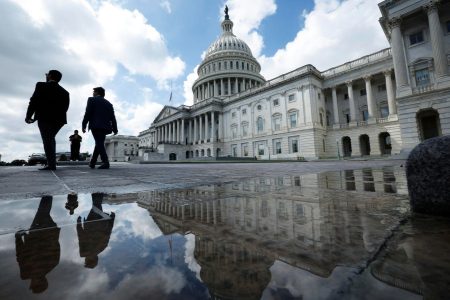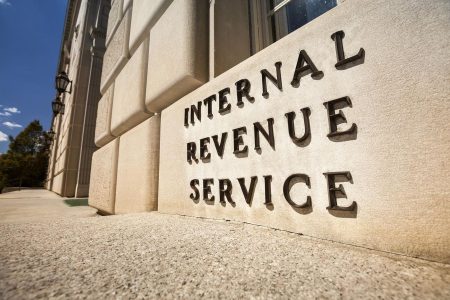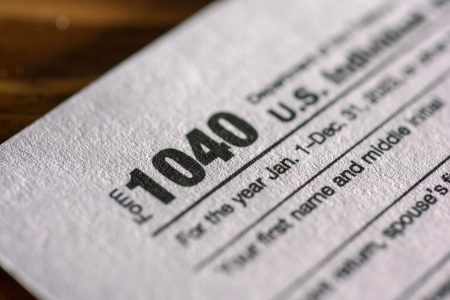“No one is above the law” – an idea that has been in the news quite a bit of late. But is a federal agency, like the IRS, above the law? On June 4, the Eleventh Circuit resoundingly answered no, invalidating Notice 2017-10 because the IRS failed to follow all applicable laws and rules when issuing that Notice in Green Rock LLC v. Internal Revenue Service.
In December of 2016, the IRS issued Notice 2017-10, which designated certain conservation easement transactions as “listed transactions” and required taxpayers, sponsors, and advisors to disclose their connection to the transactions. A so-called “listed transaction” is a transaction that is the same as, or substantially similar to, one that the IRS has determined to be a tax avoidance transaction and identified by IRS notice or other form of published guidance. It doesn’t take a tax lawyer to know that if the IRS has a “list,” better to not be on it.
When the IRS issued this Notice, it did so to warn taxpayers that the type of conservation easement transactions it was seeing were viewed by the IRS as abusive, and taxpayers needed to tell the IRS that they were engaging in this transaction. Doing so flags the transaction for the IRS and makes it easier to examine the taxpayers who engage in them. But why would anyone want to flag something like this for the IRS? They wouldn’t. This is why there are stiff penalties associated with the failure to file certain forms and disclose participation in listed transactions, because no one would want to disclose them if it wasn’t required and there weren’t stuff penalties for failing to do so.
After the Notice was issued, many tax practitioners, including myself, argued that the Notice was invalid. Besides being retroactive, the notice did not comply with the Administrative Procedure Act, or APA. Why? Because the IRS simply issued the Notice. The APA requires that when the IRS or any government agency engages in substantive rule-making, it must seek public comment. The government agency will publish “proposed” rules and ask for public comment. Anyone who is interested in how those rules are applied and what their impact will be can comment. Before a proposed rule becomes final, the agency must consider all of the comments and either change the proposed rule to incorporate the comments, or explain why it didn’t do so. In other words, the agency must at least address all the comments in the final rule, whether or not they are adopted. This is called “Notice and Comment.” The government agency gives notice of the proposed rule, allows public comment, and considers those comments before the final rule is adopted.
Notice and comment procedures exist for good reason. Congress often passes laws that leave broad discretion and power to government agencies such as the IRS. An agency must give interested parties fair notice and an opportunity to comment on a proposed rule to ensure that regulated entities understand their legal obligations and to produce a rule that reflects the collective expertise of industry participants.
The IRS issued Notice 2017-10 without engaging in Notice and Comment. The IRS took the position that the rules requiring Notice and Comment don’t apply to the IRS. The Eleventh Circuit disagreed, invalidating the Notice. David Foster, a tax partner with Kirkland & Ellis, welcomed the decision. “As the Supreme Court observed in CIC Services, Congress’s listed transaction regime is backed by severe civil and even criminal sanctions. All taxpayers should be relieved that the Eleventh Circuit joined the Sixth Circuit and the Tax Court in reaffirming the importance of notice and the opportunity for public comment before an administrative agency can unliterally dictate which transactions trigger these sanctions.”
Michelle Levin, a shareholder with Dentons, agrees, noting the decision “confirms that adherence to the APA is an unwavering obligation, even in the face of what the IRS may deem abusive.” Regardless of whether a taxpayer ever has anything to do with a listed transaction, the decision is good news for taxpayers and good news for tax administration. Our tax system is one of self-reporting. And because of that, the IRS imposes severe penalties on taxpayers who fail to accurately and timely report everything that has to be reported, whether it is income earned or filling out an information form such as the one required under Notice 2017-10. In other words, the IRS routinely punishes taxpayers for the failure to follow the rules. The IRS, then, should be held accountable for following the rules in the APA. Industry input is so important that Congress required it. Should the IRS be able to ignore that?
In baseball, we rely on umpires to call the game fairly. Umpires have to determine balls and strikes and enforce the rules of baseball against both teams. I was at a recent baseball game for my ten year old twin boys, and a pop ball flew just past the foul line. The first baseman almost caught it, but it dropped out of his glove. The ump saw the “almost catch” and called out. To his credit, the first baseman admitted he didn’t catch the ball. The ump said “I don’t care,” and still called the batter out.
The decision from the Eleventh Circuit is important for more than just invalidating Notice 2017-10. It delivered on the promise of our constitutional separation of powers and the role of courts to say what the law is. The law applies to everyone – not just taxpayers. Luckily for all of us, unlike the ump in my ten year old boys’ game, the Eleventh Circuit required everyone, including the IRS, to follow the rules.
Read the full article here












